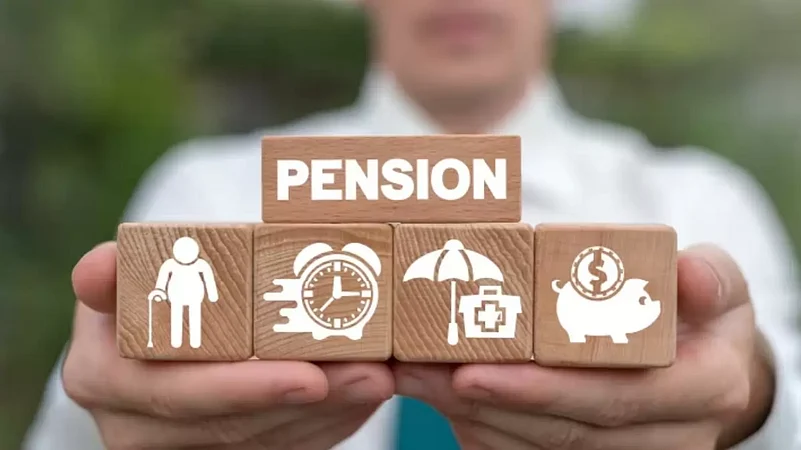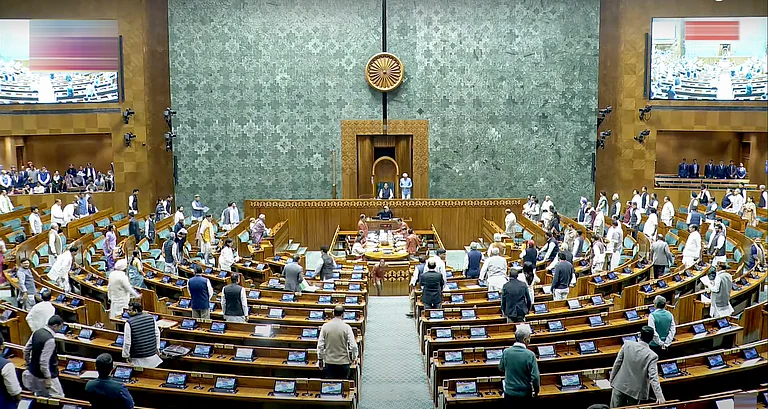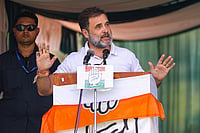The central government on Saturday approved an assured 50 per cent of salary as pension for government employees under the Unified Pension Scheme.
The Union Cabinet -- chaired by Prime Minister Narendra Modi -- approved the scheme which is aimed at providing assured pension, family pension mention and assured minimum pension to government employees.
Union Minister Ashwini Vaishnaw told reporters, "Today the Union Cabinet has approved Unified Pension Scheme (UPS) for government employees providing for the assured pension."
Under this, first pillar of the scheme is 50 per cent assured pension, second pillar is assured family pension. "About 23 lakh employees of the central government would benefit from the Unified Pension Scheme (UPS)...There will be an option for the employees to opt between NPS and UPS," Vaishnaw said.
Notably, the 50 per cent assured pension amount will be the average of basic pay of 12 months before superannuation. "If someone has worked for 25 years, then that person will get this assured pension amount."
In the assured family pension, 60 per cent of pension of the employee can be immediately withdrawn before his or her demise. And as for assured minimum pension, government employees will be eligible to get Rs 10,000 per month on superannuation after a minimum service of 10 years.
Notably, the National Pension System is applicable for government employees joining the service after April 1, 2004. It was based on the premise of contribution rather than defined benefit applicable for employees prior to the NPS.
Vaishnaw noted that some government employees had demanded some changes in the New Pension Schemes, adding that for the same, PM Modi had constituted a committee under the chairmanship of Cabinet Secretary TV Somanathan.
"This committee held more than 100 meetings with different organisations and nearly all the states. There's a difference between how PM Modi works and the oppositions works," the Union Minister said.
He also hit out at the opposition bloc and said that unlike them, the Prime Minister believes in holding extensive consultations.
After consultations with everyone, including the Reserve Bank of India and the World Bank, the committee recommended a Unified Pension Scheme and now, Vaishnaw said, the Union Cabinet has approved it.
Reacting to UPS, PM Modi took to X and said, "We are proud of the hard work of all government employees who contribute significantly to national progress. The Unified Pension Scheme ensures dignity and financial security for government employees, aligning with our commitment to their well-being and a secure future."
The Cabinet also approved the continuation of three umbrella schemes of the Department of Science and Technology, merged into a unified central sector scheme called 'Vigyan Dhara'.
The proposed outlay for the scheme is Rs 10,579 crore during the 15th Finance Commission period from 2021-22 to 2025-26, Vaishnaw told reporters.
There are three broad components of the Vigyan Dhara scheme -- science and technology institutional and human capacity building; research and development; and innovation, technology development and deployment.
Additionally, Vaishnaw said that a major decision was also taken by the Union Cabinet on BioE3. " Like there was industrial revolution and IT revolution, a bio revolution will soon take place. Fields related to bio-technology and bio-science will help in generating a lot of job opportunities," he said.
"For this, we needed a good policy framework - Biotechnology for Economy, Environment and Employment - which has been approved by the Cabinet. This policy has six pillars," he noted.
Vaishnaw said that the BioE3 policy seeks to include innovation-driven support for research and development and entrepreneurship across thematic sectors.
This will accelerate technology development and commercialisation by establishing biomanufacturing and bio-AI hubs and biofundry, he said.


























